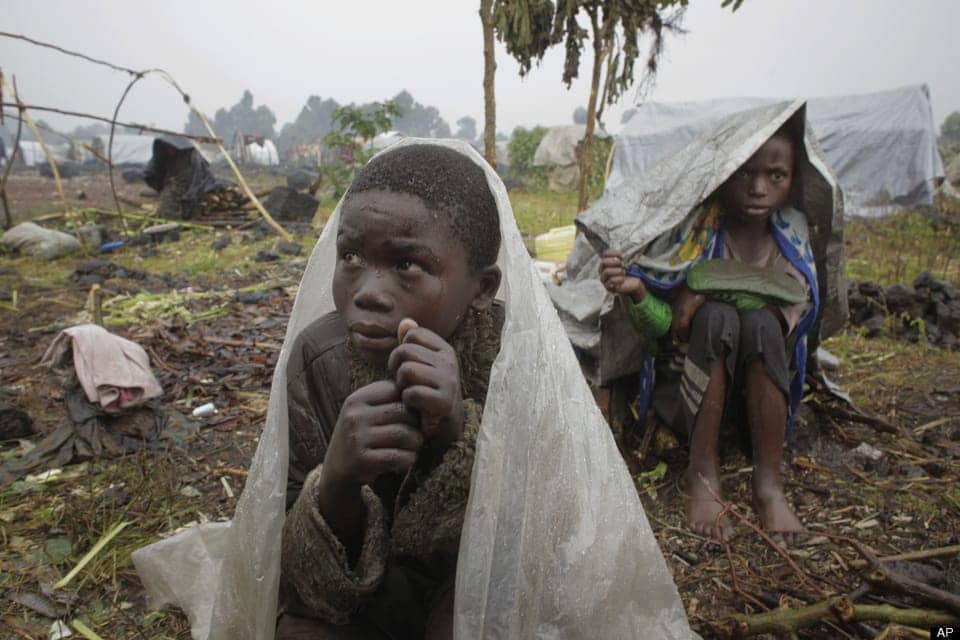
This looks in many ways like Native American Genocide or any genocide of native people. Armies break up families and communities, forcing them off the land that someone else covets, to die in refugee camps of hunger, disease or heartbreak. It took four centuries to decimate the native population of what became the United States, but millions of eastern Congolese people have perished since 1996 alone, mostly from hardship after being displaced.
As I worked on the radio news, I asked myself, as I often do, why report this on KPFA’s FM radio signal here in Northern and Central California, or even on KPFA’s webstream, to an audience which is mostly American?
My answer always is, because the U.S. is very, very involved. Two of the Pentagon’s most longstanding “partners,” Uganda’s President Yoweri Museveni and Rwanda’s President Paul Kagame, have been the principle aggressors in the Democratic Republic of the Congo since 1996.
Two of the Pentagon’s most longstanding “partners,” Uganda’s President Yoweri Museveni and Rwanda’s President Paul Kagame, have been the principle aggressors in the Democratic Republic of the Congo since 1996.
The U.S. has armed, trained and provided logistical and intelligence support to both their armies for many years and employed their soldiers in service to its national security agenda in Haiti, Sudan, Somalia, elsewhere on the African continent, and even Iraq.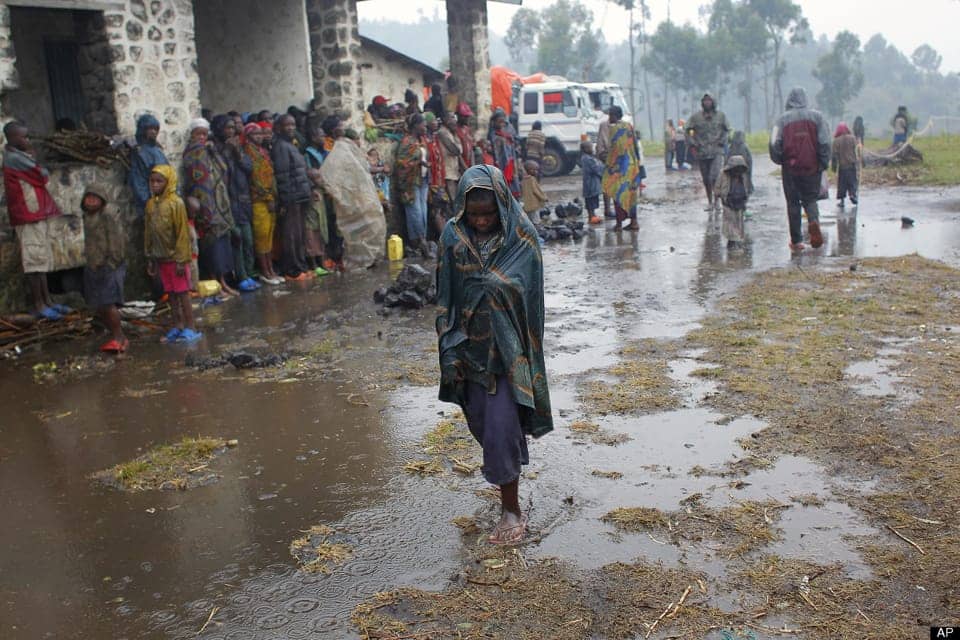
In October 2010, President Obama announced the introduction of combat equipped U.S. Special Forces into the region. But this is not a hunt for Joseph Kony or any other bad actors. It’s a military operation to secure oil and other African resources and limit Chinese access.
If the phony Kony hunt escalates, as Prendergast and the ENOUGH Project urge, as more and more Congolese people flee the Rwandan backed M23 militia, seeking shelter in camps, without adequate food, clean water or sanitation, Obama will become the Black face of genocide in the heart of Africa.Many agree that has already happened.
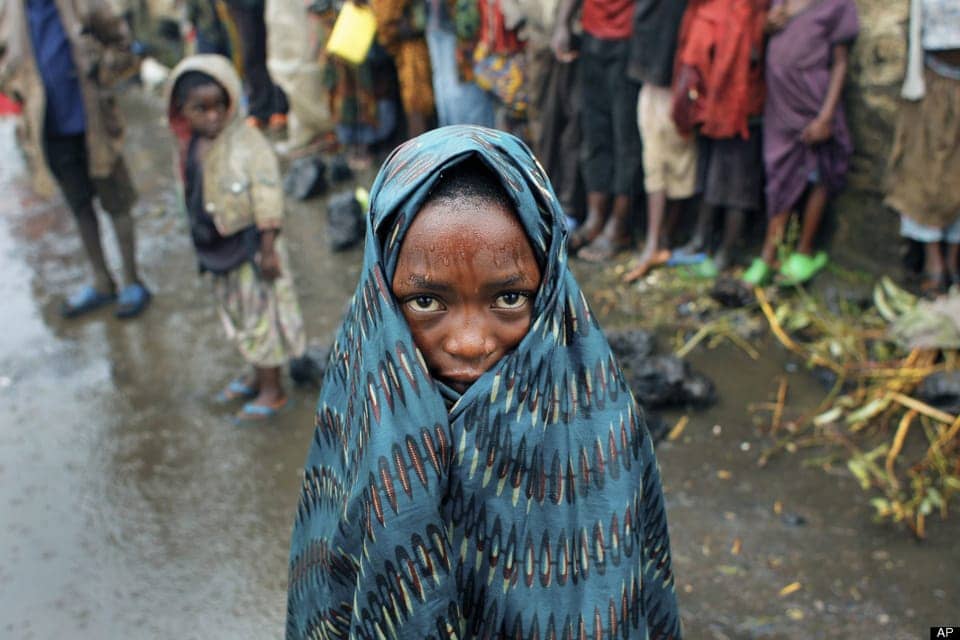
And now, grim as the news from eastern Congo is, there is some hope. It is still possible to fight for the Obama so many Americans hoped to elect. Here are reasons for hope:
1) Last week, a bi-partisan Congressional coalition headed by Washington State’s Jim McDermott wrote a letter to Rwandan President Paul Kagame to say that the latest U.N. report decisively proves that Kagame is backing the M23 militia’s resumption of the war in eastern Congo and that the current relationship between the U.S. and Rwanda must end.
2) The most recent U.N. experts report on Congo includes photographic and other documentary evidence that Rwanda is backing the M23 militia in Congo.
3) In response to the U.N. experts report, the U.S. suspended $200,000 in military aid to Rwanda, and the U.K., the Netherlands, Germany and Sweden suspended contributions to Rwandan budget support.
4) More prominent people and publications, including Mvemba Phezo Dizolele, writing in the same Foreign Policy journal that published Prendergast’s “Let Them Hunt,” are pointing to President Obama’s own Senate legislation, the Obama Congo Relief, Security, and Democracy Promotion Act of 2006, which became Public Law 109-456, and suggesting that it gives Obama both special expertise and obligation in Congo.
5) On Friday, Aug. 17, Rwandans and Congolese will gather in The Hague, Netherlands, to present a complaint with documentary evidence and petition the new chief prosecutor of the International Criminal Court to indict Rwandan President Paul Kagame.
These efforts all deserve the attention and support of those who worked to elect Barack Obama, not because they thought he would serve as the Black face of resource war and African genocide, but because they hoped his election would signal the end of it.
Cholera breaks out in camp for Congolese fleeing war
KPFA Evening News broadcast Aug. 4, 2012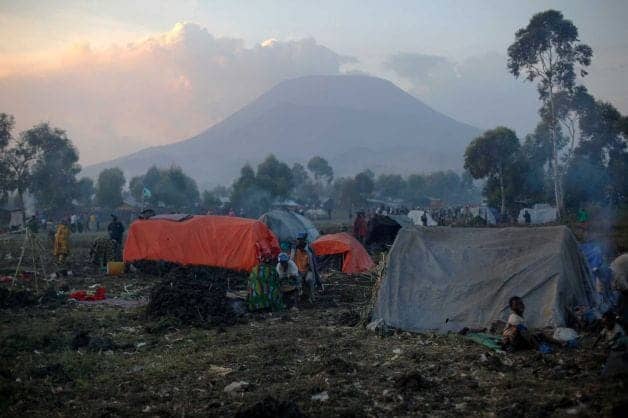
KPFA Weekend News Anchor Anthony Fest: Turning now to news from Africa, an outbreak of cholera, a contagious disease caused by lack of sanitation facilities, has claimed at least nine lives in an eastern Congo refugee camp. The first case appeared Aug. 1 among thousands of people in a makeshift camp there. Patrick Wieland from Doctors Without Borders said his organization had set up a clinic tent to treat victims on the outskirts of Goma, the capital of North Kivu province.
He said humanitarian agencies were delivering water to the camp but that it was probably being collected with dirty containers. He also said that there were not enough toilets for the people who fled fighting north of Goma last week. KPFA’s Ann Garrison explains some of the background to the humanitarian crisis in the eastern Democratic Republic of Congo.
KPFA Ann Garrison: Stories of hunger and now a cholera outbreak in swelling refugee camps in eastern Congo are in the news now, but they could just as easily be news of much of the last 16 years, since 1996. Since that year the armies of Uganda and Rwanda have invaded the Democratic Republic of the Congo and collaborated with international mining, banking and national interests to organize the illegal resource extraction detailed in the past 12 years of U.N. investigations of the conflict. The Ugandan and Rwandan governments claim they are acting to protect their own borders from hostile militias or protecting ethnic Tutsis and related populations.
Kambale Musavuli, student coordinator and mining researcher for Friends of the Congo, is among those who have said that the conflict is not about ethnicity, but about displacing Congolese people. Kambale Musavuli: It has nothing to do with ethnicity. They killed Congolese like they were flies. You see our people – you feel a mosquito – and you just hit. That’s exactly how they kill. It did not mean anything to them, how they were killing the Congolese, as long as they could just wipe them out and get access.
I mean, the mines exist. People used to live in those areas. Have we ever asked who was living where the mine was before? Did the mines just show up? No, there were villages where those mines were.
KPFA: Last week, when the United Nations high commissioner for refugees reported its new estimate that nearly half a million more Congolese people have been displaced since April, the agency’s spokesperson also reported that this has swollen the population of internally displaced persons within Congo’s own borders to 2.1 million.
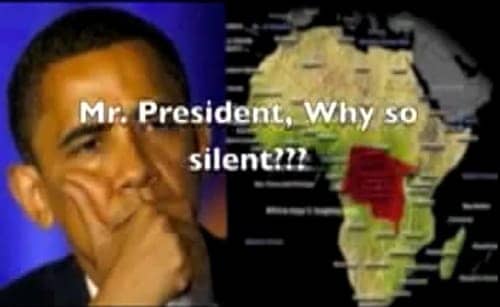
San Francisco writer Ann Garrison writes for the San Francisco Bay View, Global Research, Colored Opinions, Black Star News, the Newsline EA (East Africa) and her own website, Ann Garrison, and produces for AfrobeatRadio on WBAI-NYC, Weekend News on KPFA and her own YouTube Channel, AnnieGetYourGang. She can be reached at ann@afrobeatradio.com. If you want to see Ann Garrison’s independent reporting continue, please contribute on her website at anngarrison.com.

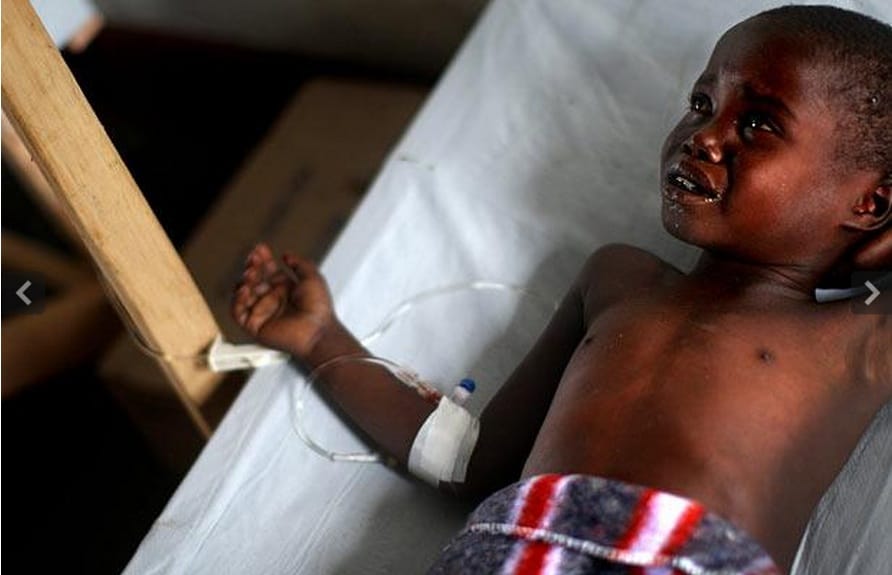










No comments:
Post a Comment
Note: only a member of this blog may post a comment.